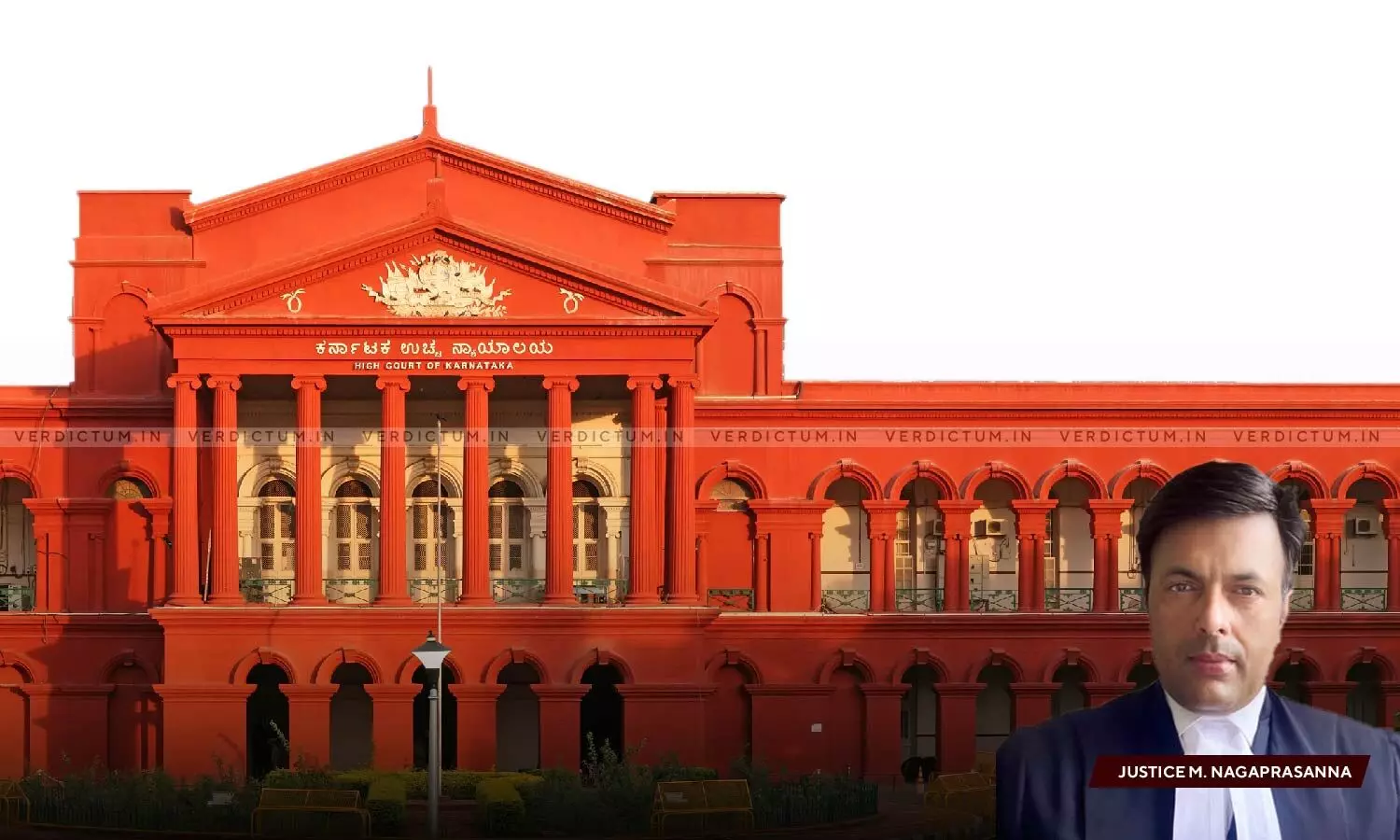
IBC Proceedings Not Maintainable Qua Promoter Whose Personal Loan Guarantee Stands Waived: Karnataka HC
 |
|The Karnataka High Court has observed that once the personal guarantee of a promoter or any other person stands waived, he is no longer a guarantor to loan/finance availed by the Company and insolvency proceedings qua such person will not be maintainable.
The Petitioner challenged the order passed by the National Company Law Tribunal (‘NCLT’) which appointed a Resolution Professional under Section 97 of the Insolvency and Bankruptcy Code, 2016 (‘IBC’).
The Bench of Justice M Nagaprasanna observed, “Therefore, the proceedings against an individual before the Tribunal would become maintainable, only if he has stood as personal guarantor to any loan of any Company. No doubt, the petitioner did give his approval, as a guarantor in the year 2010, when the term loan was granted. Subsequently, the personal guarantee of the petitioner stood waived in terms of what is noted supra. If personal guarantee of the petitioner has stood waived, he is no longer a guarantor to the finance availed by Company. The proceedings before the Tribunal can be maintained only against a person in default or against a personal guarantor of a Company in terms of the amendment considered in the aforesaid judgment. Therefore, if the petitioner is no longer a personal guarantor, proceedings before the Tribunal against him, depicting him to be a personal guarantor would not be maintainable.”
Senior Advocate S. Basavaraj appeared for the Petitioner whereas Senior Advocate S.S. Naganand appeared for the Respondents.
The Petitioner was a promoter of a Company, who was suspended from the company. Respondents-Banks entered into term loan agreements with the Company to grant term loan facilities. The Respondents-Banks later began legal proceedings against the Company initiating proceedings under sub-section (2) of Section 13 of the Securitization and Reconstruction of Financial Assets and Enforcement of Security Interest Act (‘SARFAESI Act’). One of the banks also initiated proceedings under Section 7 of the IBC. The NCLT later passed an order under Section 97 of IBC appointing a Resolution Professional and directed him to submit a report.
The Petitioner submitted that the NCLT had no jurisdiction to continue proceedings against the Petitioner-promoter as his personal guarantee was not in existence as of the date between the Petitioner and the consortium of Banks which had extended the credit facilities to the Company.
The Court also referred to a recent judgment of its own in M/s Manyata Reality v. Registrar, NCLT (2024), which held, “The maintainability of the petition before the Tribunal cuts at the root of the matter, as it relates to jurisdiction, to entertain the petition by the Tribunal. The Code does not permit it. If that be so, even a speck of paper cannot move before a fora that has no jurisdiction. It is ununderstandable as to how and why the petitioners have to go before the Tribunal and tell the Tribunal that it has no jurisdiction to entertain the petition. The very acceptance of filing by the Tribunal is contrary to law.”
While holding that judgment in Dilip B. Jiwrajka v. Union Of India (2023) would not be applicable in the present case, the Court observed, “The Resolution Professional is appointed under Section 97 and serves in a facilitative role. There is no violation of natural justice under Sections 95 to 100 of the Code and the report of the Resolution Professional is only a recommendatory and does not bind the adjudicating authority. The purpose of interim moratorium under Section 96 is to protect the debtor from further legal proceedings. Therefore, the provisions i.e., Sections 95 to 100 of the Code were held to be not unconstitutional in a challenge to the constitutional validity. There can be no qualm about the principles laid down by the Apex Court as to the issue whether the petition would even be maintainable before the Tribunal. The Apex Court was not considering a petition that was not maintainable before the Tribunal, as only under two circumstances this Court has considered whether the proceedings before the Tribunal would be maintainable. Non-maintainability of it would cut at the root of the matter.”
Accordingly, the Court allowed the writ petition and quashed the order passed by the NCLT qua the Petitioner.
Cause Title: Farooq Ali Khan v. Bank of Baroda and Ors.
Appearances:
Petitioner: Senior Advocate S. Basavaraj and Advocate Sivaramakrishnan M.S.
Respondents: Senior Advocate S.S. Naganand, Advocates Lomesh Kiran N., Sharan A. Kukreja and Karan Dhalla.